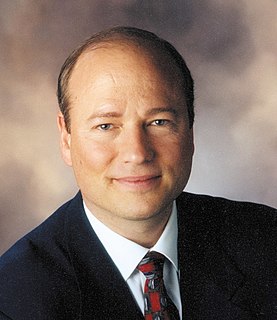A Quote by Robert M. Pirsig
Any person of any philosophic persuasion who sits on a hot stove will verify without any intellectual argument whatsoever that he is in an undeniably low-quality situation: that the value of his predicament is negative. This low quality is not just a vague, woolly-headed, crypto-religious, metaphysical abstraction. It is an experience. It is not a judgment about an experience. It is not a description of experience. The value itself is an experience. As such it is completely predictable. It is verifiable by anyone who cares to do so.
Quote Topics
Related Quotes
The birth of a new fact is always a wonderful thing to experience. It's dualistically called a "discovery" because of the presumption that it has an existence independent of anyone's awareness of it. When it comes along, it always has, at first, a low value. Then, depending on the value-looseness of the observer and the potential quality of the fact, its value increases, either slowly or rapidly, or the value wanes and the fact disappears.
To come to faith on the basis of experience alone is unwise, though not so foolish as to reject faith altogether because of lack of experience ... the quality of a Christian's experience depends on the quality of his faith, just as the quality of his faith depends in turn on the quality of his understanding of God's truth.
To live means to experience-through doing, feeling, thinking. Experience takes place in time, so time is the ultimate scarce resource we have. Over the years, the content of experience will determine the quality of life. Therefore one of the most essential decisions any of us can make is about how one's time is allocated or invested.
If you were to turn on the TV in 1986, '87, you wouldn't see anybody having, I guess, a low-to-middle-income person of color experience. And you definitely wouldn't have a young LGBT person or their story told. The experience of being invisible in our culture has ramifications that I don't think any of us can really understand.
There is, moreover, very little sense in preventing young people from giving expression to their ideas on the pretext that they have less experience than have older persons. There are many who may live a thousand years without encountering experience of any value. It could only be in a society of persons equally gifted that such an idea could have any meaning.
Direct experience is inherently too limited to form an adequate foundation either for theory or for application. At the best it produces an atmosphere that is of value in drying and hardening the structure of thought. The greater value of indirect experience lies in its greater variety and extent. History is universal experience, the experience not of another, but of many others under manifold conditions.
Certainly Christianity is an experience, but equally clearly the validity of ane experience has to be tested. There are people in lunatic asylums who have the experience of being the Emperor Napoleon or a poached egg. It is unquestionably an experience, and to them a real experience, but for all that it has no kind of universal validity. It is necessary to go far beyond simply saying that something comes from experience. Before any such thing can be evaluated at all, the source and character of the experience must clearly be investigated.
The philosopher ... subjects experience to his critical judgment, and this contains a value judgment namely, that freedom from toil is preferable to toil, and an intelligent life is preferable to a stupid life. It so happened that philosophy was born with these values. Scientific thought had to break this union of value judgment and analysis, for it became increasingly clear that the philosophic values did not guide the organisation of society.
Words are merely utterances: noises that stand for feelings, thoughts, and experience. They are symbols. Signs. Insignias. They are not Truth. They are not the real thing. In fact, you place so little value on experience that when what your experience of God differs from what you've heard of God, you automatically discard the experience and own the words, when it should be just the other way around.








































